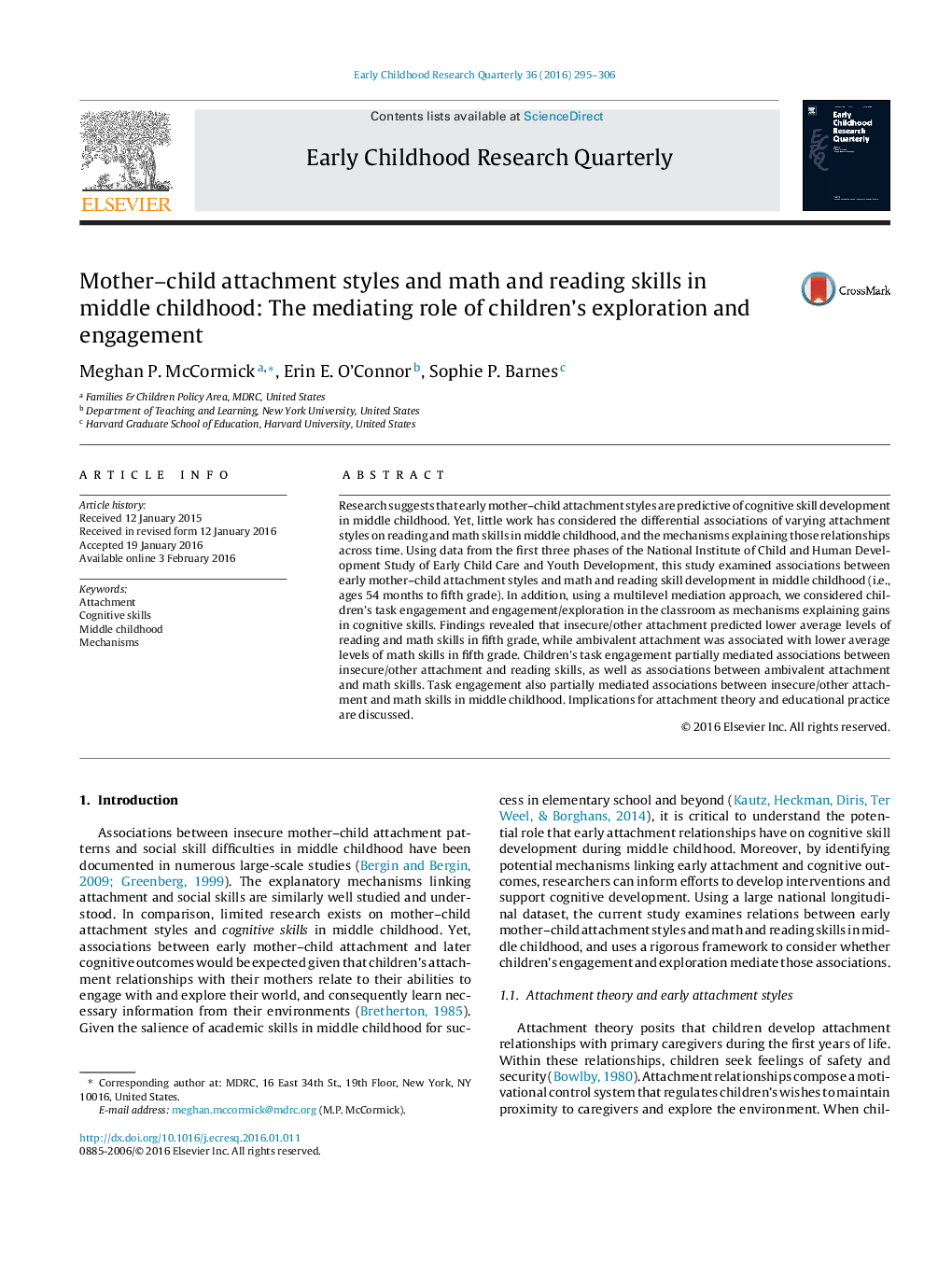| Article ID | Journal | Published Year | Pages | File Type |
|---|---|---|---|---|
| 353666 | Early Childhood Research Quarterly | 2016 | 12 Pages |
•We examine links between early mother–child attachment styles and cognitive skills.•We consider engagement and exploration as mechanisms explaining these associations across middle childhood.•Insecure/other attachment predicted lower math and literacy skills in fifth grade.•Ambivalent attachment predicted lower level math skills in fifth grade.•Task engagement partially mediated those associations.
Research suggests that early mother–child attachment styles are predictive of cognitive skill development in middle childhood. Yet, little work has considered the differential associations of varying attachment styles on reading and math skills in middle childhood, and the mechanisms explaining those relationships across time. Using data from the first three phases of the National Institute of Child and Human Development Study of Early Child Care and Youth Development, this study examined associations between early mother–child attachment styles and math and reading skill development in middle childhood (i.e., ages 54 months to fifth grade). In addition, using a multilevel mediation approach, we considered children's task engagement and engagement/exploration in the classroom as mechanisms explaining gains in cognitive skills. Findings revealed that insecure/other attachment predicted lower average levels of reading and math skills in fifth grade, while ambivalent attachment was associated with lower average levels of math skills in fifth grade. Children's task engagement partially mediated associations between insecure/other attachment and reading skills, as well as associations between ambivalent attachment and math skills. Task engagement also partially mediated associations between insecure/other attachment and math skills in middle childhood. Implications for attachment theory and educational practice are discussed.
